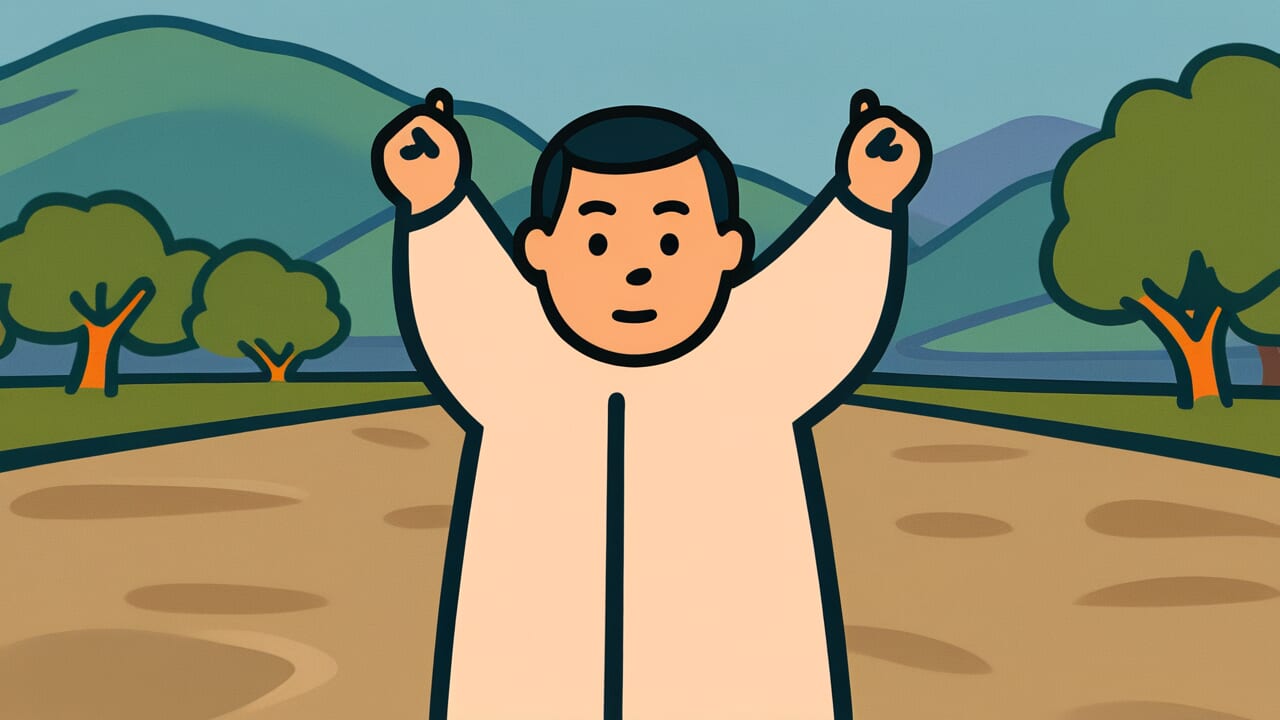How to Read “The wise are not broad”
Chisha wa haku karazu
Meaning of “The wise are not broad”
“The wise are not broad” means that people with true wisdom don’t spread their knowledge around to show off. People with deep learning and understanding don’t boast about what they know. Instead, they maintain a humble attitude.
This proverb is used when you see someone flaunting their knowledge. It also applies when you feel tempted to brag about what you’ve learned. People use it to praise those who quietly demonstrate their abilities.
Today, we have more chances to share knowledge and experiences through social media. But the essence of this proverb hasn’t changed.
People who reach true understanding realize their own ignorance the more they learn. They know how dangerous it is to speak carelessly.
This contrasts with those who gain surface-level knowledge and immediately want to display it. True wise people remain careful and humble.
Origin and Etymology
This proverb is thought to be influenced by the philosophy of “Laozi,” an ancient Chinese text. Laozi’s teachings include the famous phrase “Those who know do not speak; those who speak do not know.” This shows the idea that truly wise people don’t talk much.
The expression “The wise are not broad” follows this same line of thinking. Here, “broad” means “showing off widely” or “flaunting.” In ancient China, scholars were warned against boasting about their knowledge. These teachings were highly valued.
After reaching Japan, this idea likely connected with the spirit of bushido. Among samurai, people believed that truly skilled warriors should be humble. Master swordsmen didn’t talk about their abilities. Learned scholars didn’t flaunt their knowledge. This was the ideal.
What’s interesting is that this saying isn’t just about being modest. It points to the essence of wisdom itself.
People who reach deep understanding know the limits of knowledge. That’s why they don’t speak carelessly.
The ancients sharply observed human nature. They noticed that people with superficial knowledge are most eager to show it off.
Usage Examples
- That professor is a world-renowned researcher, yet “the wise are not broad” – he always listens calmly to students
- He has many certifications, but he’s far from “the wise are not broad” – every time we meet, he only brags about himself
Universal Wisdom
The proverb “The wise are not broad” reveals a deep truth about the relationship between human knowledge and humility. Why do truly wise people avoid flaunting their wisdom?
It’s because the deeper your learning goes, the more you realize how vast the unknown is. People who learn just a little mistakenly think they know a lot.
But as you continue learning deeply, you discover how wide and deep the ocean of knowledge truly is. Someone at the foot of a mountain thinks they can see the summit. But once they start climbing, they realize even higher peaks stretch beyond.
True wise people also know the limits of words. Deep understanding and insight can’t be easily expressed in language. They understand the danger of damaging the essence by speaking carelessly.
Humans have a need for recognition. We want others to acknowledge our value. Flaunting knowledge is an expression of this desire.
But true wise people have moved beyond this need. They know the joy of pursuing truth itself, not seeking evaluation from others.
This proverb has been passed down for so long because it captures the essence of human growth. No other phrase so concisely expresses the difference between immaturity and maturity.
When AI Hears This
In information theory, compressing data always forces a choice. Do you save all the original data, or extract only the important patterns? For example, when memorizing 100 books, someone who memorizes every word uses their brain fundamentally differently from someone who summarizes each book’s core in one line.
What’s interesting is that higher compression rates require better “noise removal ability.” In other words, when wise people take in information, they instantly distinguish what’s essential from what’s noise.
This isn’t simple reduction – it’s advanced information processing. When a broadly learned person holds 1,000 facts, a wise person extracts the 10 principles behind them.
The information volume is one-hundredth, but the application range actually expands. That’s because principles can apply to unknown situations too.
Modern AI development faces the same dilemma. Increasing parameters lets you memorize more examples, but causes a problem called overfitting. You perfectly memorize training data but can’t handle new problems.
Meanwhile, properly compressed models capture the essence with fewer parameters. They show strong generalization performance even with unknown cases.
This proverb offers a perspective shift. It reframes the human brain’s memory capacity limits not as a weakness, but as “optimization through constraints” that forces essence extraction.
Lessons for Today
What this proverb teaches you today is that real growth isn’t about the amount of knowledge. It’s about having the humility to recognize your own ignorance.
With information overflowing on social media and the internet, we can easily obtain knowledge now. But there’s also a growing danger of mistaking searched information for our own understanding.
What matters isn’t counting what you know. It’s noticing the vastness of what you don’t know.
At work or school, you’ll have moments when you want to show off your knowledge or experience. But that’s exactly when you should pause.
If you truly understand something, you should be able to explain it in a way that meets the other person where they are. Instead of flaunting, focus on helping the other person understand.
Also, when you find someone quietly demonstrating their abilities, learn from their attitude. Even without flashiness, people with solid strength embody deep wisdom.
You can aim to become that kind of person too. Knowledge isn’t for showing off. It’s for polishing so you can help others.



Comments